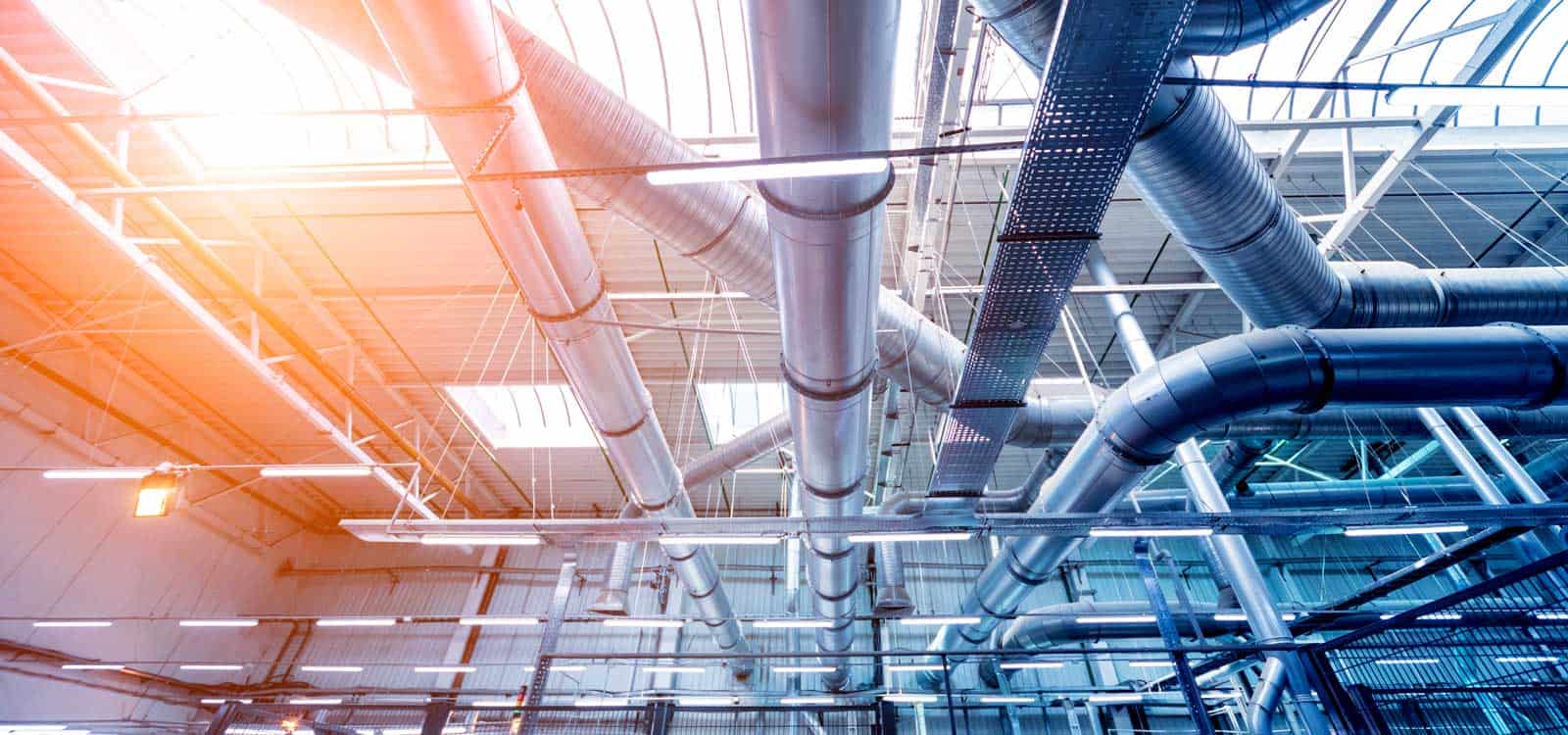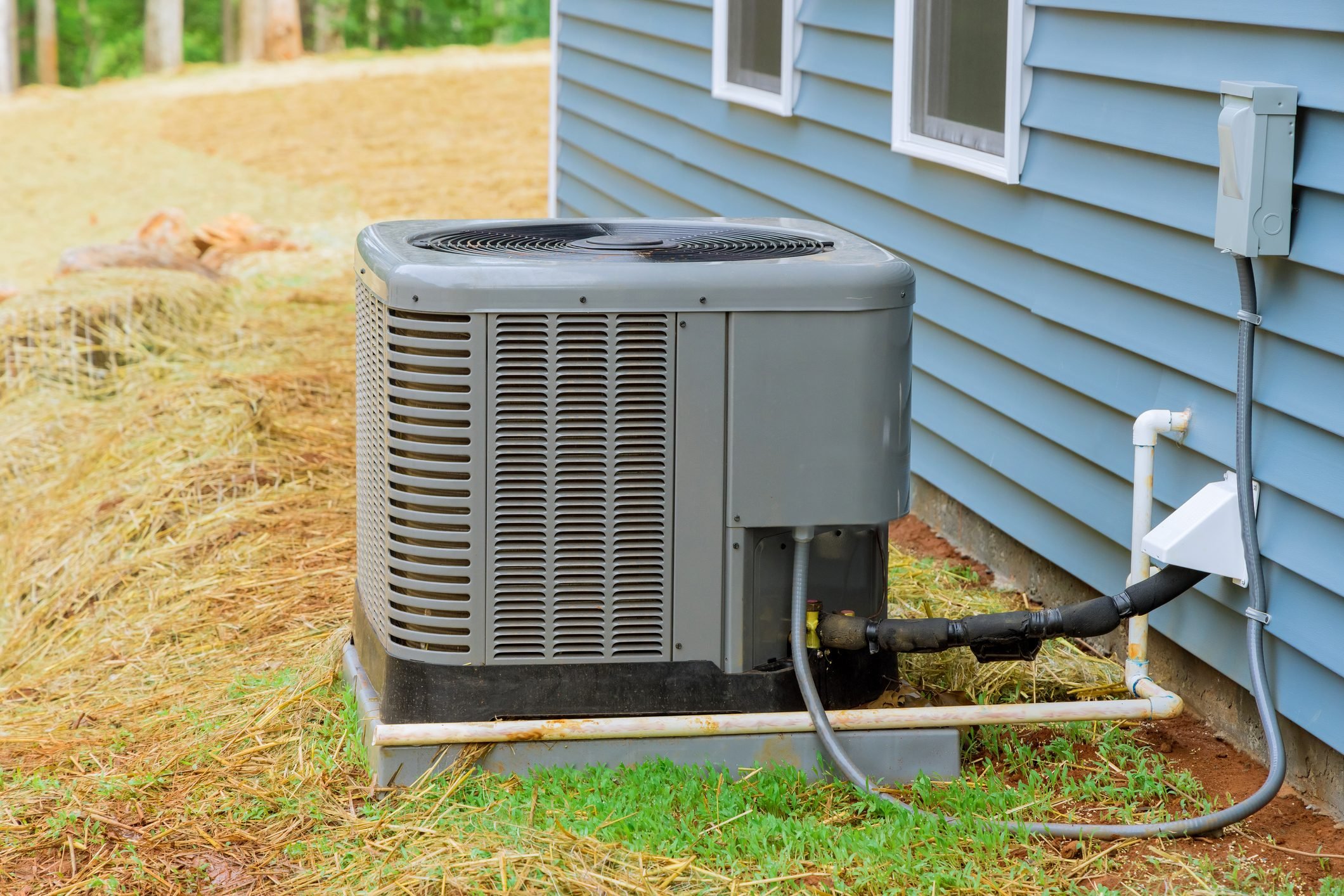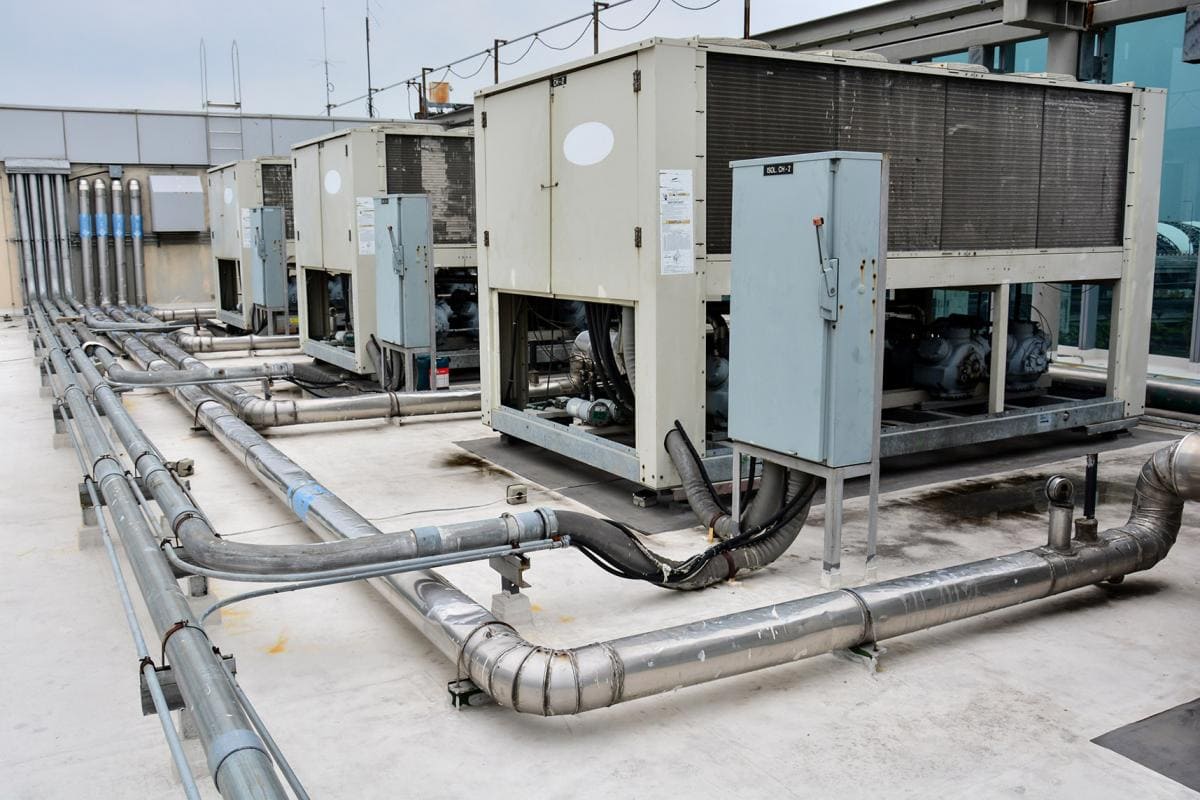Discover how trusted HVAC experts can boost your house comfort this season
Checking Out the Crucial Elements of an Effective A/c System
An effective cooling and heating system is built on several critical parts that operate in harmony. Each part, from the thermostat to the ductwork, plays a crucial duty in keeping comfort and power efficiency. Comprehending these elements is critical for optimizing efficiency and enhancing interior air quality. As one takes a look at these parts, the elaborate relationships between them expose understandings into enhancing general system performance. What certain elements add most to this effectiveness?
The Function of the Thermostat in Cooling And Heating Performance

Usually overlooked, the thermostat plays a critical duty in the effectiveness of Cooling and heating systems. This little gadget acts as the main control center, managing temperature level settings and making sure suitable convenience within a room. By properly noticing the ambient temperature level, the thermostat interacts with the ventilation, heating, and air conditioning systems to preserve the wanted climate
An efficient thermostat minimizes power usage by triggering the a/c system only when needed, thus preventing extreme heating or air conditioning. Modern clever and programmable thermostats improve this performance even more by permitting customers to set schedules and remotely readjust settings, adjusting to day-to-day routines.
The placement of the thermostat is important; improper place can lead to inaccurate temperature level readings, resulting in inefficient procedure. Generally, a well-functioning thermostat not only improves convenience but likewise adds considerably to power savings and the durability of the heating and cooling system.
Comprehending the Importance of Air Filters
Air filters offer a necessary feature in HVAC systems by guaranteeing that the air flowing within a room remains tidy and healthy and balanced. These filters catch dust, irritants, and various other toxins, preventing them from being recirculated throughout the setting. By recording these particles, air filters contribute to enhanced indoor air high quality, which can significantly benefit owners' wellness, particularly those with allergic reactions or respiratory problems.
Furthermore, keeping clean air filters improves the efficiency of a/c systems. Stopped up filters can limit air flow, causing the system to function more difficult to maintain desired temperatures, resulting in raised energy intake and greater utility costs. On a regular basis replacing or cleaning filters is an essential upkeep step that can prolong the life expectancy of cooling and heating equipment. Inevitably, comprehending the relevance of air filters permits property owners and structure managers to take proactive steps to guarantee a well-functioning, reliable HVAC system that advertises a comfortable and safe indoor setting.

The Performance of the Heater and Heat Pump
Heating systems and heatpump are crucial parts of heating and cooling systems, in charge of supplying warmth during colder months. Heaters operate by home heating air via burning or electric resistance, after that distributing it throughout the home through ducts. They normally provide rapid heating and can be fueled by gas, electrical energy, or oil, depending on the system kind.
Conversely, heatpump move heat instead of create it. They extract warm from the outdoors air or ground, also in low temperatures, and move it inside your home. HVAC experts. This double performance permits heatpump to also supply cooling in warmer months, making them flexible alternatives for year-round climate control
Both systems require appropriate upkeep to guarantee performance and longevity. While heating systems excel in severe cool, heat pumps can be useful in modest climates. Understanding their unique functionalities help house owners in picking one of the most ideal choice for their home heating needs.
Exploring the A/c Device
The cooling device is an essential part of a/c systems, readily available in various kinds to fit different requirements. Comprehending the effectiveness scores of these units is important for making informed options about power usage and cost. This section will certainly discover the varied sorts of air conditioners and clarify exactly how effectiveness rankings influence efficiency.
Types of Air Conditioners
While various variables affect the choice of cooling systems, comprehending the various kinds offered is vital for property owners and structure managers alike. Central air conditioners are created to cool down more info whole homes or structures, utilizing a network of air ducts for airflow. Window systems supply a more local remedy, perfect for little rooms or solitary areas. Mobile ac system supply adaptability, allowing individuals to move the unit as required. Ductless mini-split systems are one more option, integrating the efficiency of central systems with the ease of zoning, as they require no ductwork. Lastly, geothermal systems harness the planet's temperature level for energy-efficient cooling. Each kind comes with unique advantages, making notified options vital for effective environment control.

Effectiveness Scores Discussed
Comprehending performance rankings is important for picking the best cooling unit, as these metrics provide insight right into the system's performance and power intake. One of the most typical ranking for a/c unit is the Seasonal Energy Efficiency Ratio (SEER), which measures the cooling outcome throughout a regular air conditioning period split by the overall electric power input. A higher SEER indicates far better performance. Additionally, the Power Effectiveness Ratio (EER) is used for determining efficiency under specific problems. Another crucial metric is the Power Star certification, which indicates that an unit fulfills stringent power efficiency standards. By reviewing these ratings, consumers can make enlightened options that not just enhance comfort however also reduce energy prices and environmental influence.
The Significance of Ductwork and Air flow
Reliable ductwork layout and air movement administration play crucial functions in the total effectiveness and performance of HVAC systems. Proper ductwork warranties that conditioned air is dispersed equally throughout a space, decreasing temperature level changes and improving comfort. Properly designed air ducts lessen resistance to airflow, decreasing the work on cooling and heating tools and eventually reducing power intake.
Airflow management includes strategically placing vents and registers to enhance the circulation of air. This stops common concerns such as hot or chilly areas, which can take place when air flow is obstructed or inadequately balanced. Furthermore, the right duct products and insulation can further enhance effectiveness by decreasing heat loss or gain throughout air transit.
An effective ductwork system not just adds to energy financial savings but can also prolong the life-span of heating and cooling devices by lowering unneeded strain (HVAC experts). Recognizing the importance of ductwork and air flow is vital for achieving peak Heating and cooling system efficiency.
Regular Upkeep Practices to Improve Performance
Regular maintenance techniques are important for making certain peak efficiency of a/c systems. These techniques consist of routine inspections, cleansing, and needed repair work to maintain the system running successfully. Routinely altering air filters is important, as clogged up filters can obstruct airflow and lower performance. On top of that, service technicians must inspect and tidy evaporator and condenser coils to avoid overheating and energy waste.
Annual professional inspections are likewise suggested, as skilled specialists can determine potential issues before they intensify. Oiling moving parts reduces wear and tear, contributing to a longer life-span for the system. Moreover, guaranteeing that the thermostat works appropriately help in keeping perfect temperature control.

Frequently Asked Inquiries
Exactly how Often Should I Change My Thermostat?
Thermostats ought to typically be changed every 5 to 10 years, depending on use and technology improvements. Routine checks are suggested to ensure peak efficiency, especially if experiencing irregular temperature level control or enhanced energy prices.
What Size Air Filter Is Finest for My Cooling And Heating System?
The best size air filter for a cooling and heating system varies by system style. Usually, it's crucial to get in touch with the proprietor's guidebook or inspect the existing filter dimensions to guarantee peak performance and air quality.
Can I Install a Heatpump Myself?
Installing a heat pump independently is feasible for skilled people, however it calls for expertise of neighborhood codes and electrical systems. Working with a specialist is advised to assure proper setup and suitable system performance.
Exactly how Do I Know if My Ductwork Is Efficient?
To figure out ductwork performance, one ought to look for leaks, measure air movement at vents, evaluate insulation top quality, and review temperature distinctions between supply and return air ducts. Expert evaluations can supply detailed insights right into overall efficiency.
What Are Indications My Cooling And Heating Requirements Immediate Maintenance?
Indicators that an a/c system requires instant maintenance include unusual noises, irregular temperature levels, raised power costs, unpleasant smells, and constant biking. Dealing with these concerns quickly can prevent additional damages and warranty top system performance.
Air filters offer an important function in HVAC systems by guaranteeing that the air distributing within an area remains tidy and healthy. Additionally, preserving clean air filters boosts the performance of Cooling and heating systems. Ductless mini-split systems are an additional choice, integrating the performance of main systems with the benefit of zoning, as they call for no ductwork. Recognizing performance ratings is essential for selecting the ideal air conditioning unit, as these metrics offer insight right into the system's performance and power consumption. The best size air filter for a HVAC system varies by system layout.